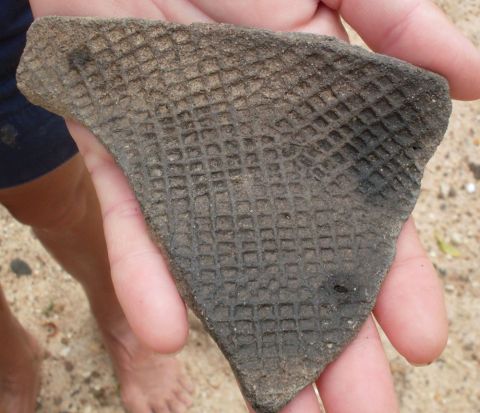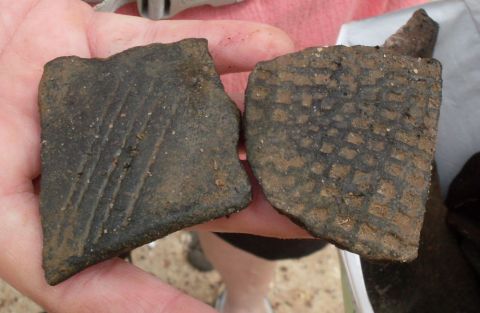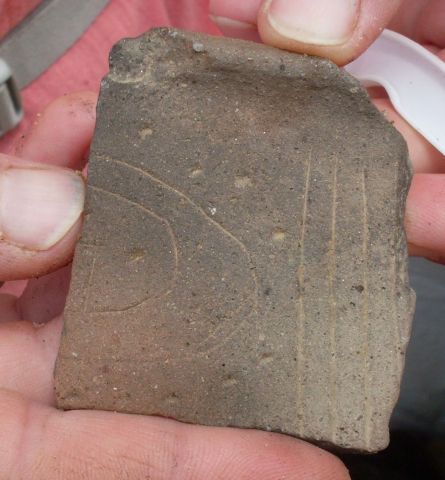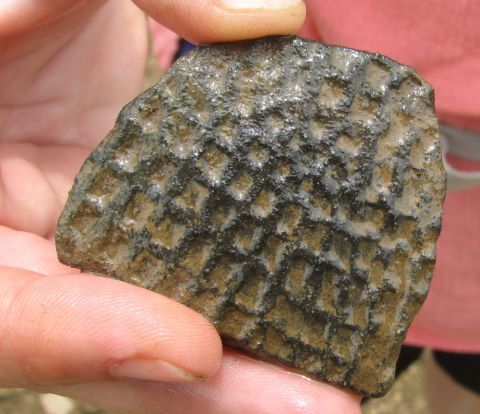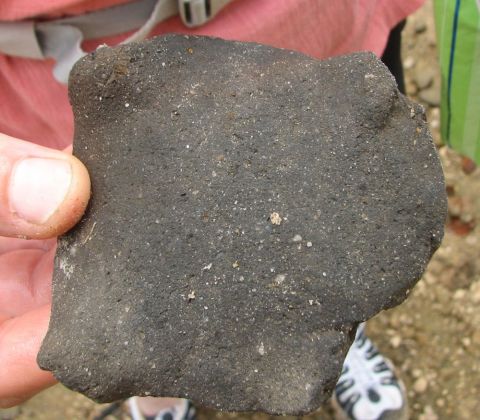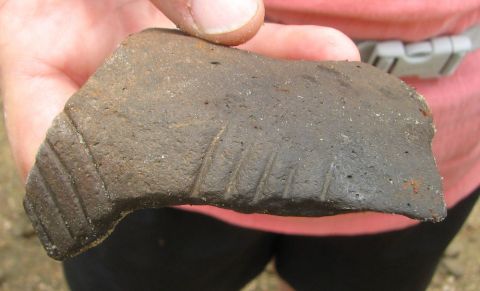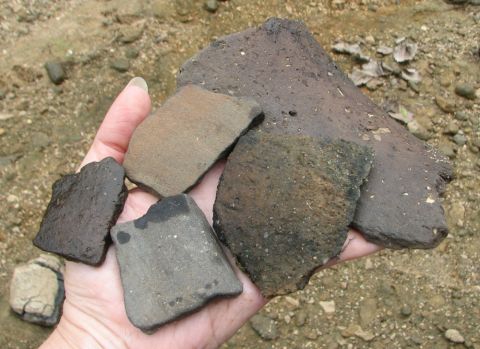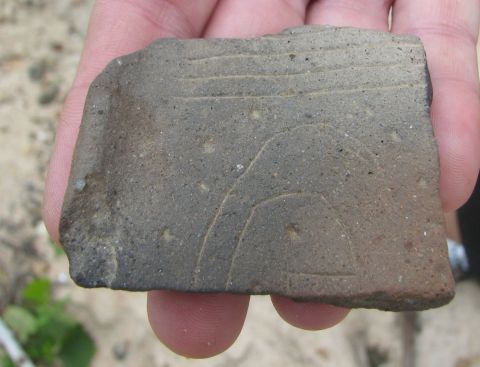June 13-14, 2009 - Artifacts, Butler Co, AL
Since many BPS club members are interested in both Paleontology and Archeology, it seemed important to find out a little bit about the culture which might have made the pottery chards which many found in the creek on the June 2009 BPS field trip.
My first thoughts were that it might have been the Creeks. Actually they originally called themselves the Isti or Istichata, but began to identify themselves as the Muskogee soon after Europeans arrived. Early settlers and traders called them Creeks after the Ocmulgee Creek in Georgia. When the first Spanish explorers came into this area in the early 1500's, The Muskogee were more of a loose confederation of small tribes, living in small villages along lakes and rivers. There are still Muskogee living in the area today.
While researching the information available on these Indians, a friend mentioned an archeologist by the name of Ned Jenkins near Wetumpka, Alabama. He is extremely knowledgeable about Alabama Indians. I decided to send a couple pictures of the pottery chards found, and also my write up on the Muskogee Indians.
Imagine my surprise when he said that the chards came from what archeologists call the Weeden Island Culture which existed between 800 – 1100 A.D. This pre-dates the Muskogee ! So let’s travel back a little bit in time around where the pottery chards were found. Perhaps 1300 years ago. It is sometimes referred to as the Woodland Period of Pre-history. The people of the Weeden Island culture had a broad-based economy that included hunting, fishing, gathering, and, probably, gardening.
There is growing evidence that they cultivated such native crops as sunflower, gourds, marsh elder, and knotweed, and possibly non-native plants including corn and beans. During the later part of the woodland period there is evidence of bow and arrow technology, and arrowheads used for hunting have been found. Not too long ago in Pinellas County, Florida, a 39 foot pine canoe dating back to approximately 1100 years ago was found, indicating these Indians had those skills also.
Late Weeden Island culture made complicated, stamped pottery, characterized by a design impressed on the surface of unfired pots with a wooden or clay paddle.
This culture eventually became part of the Mississippian culture which is where the Muskogee originated.
More about the fossils found on the trip.
--Photos courtesy Claire Smith and Vicki Lais

